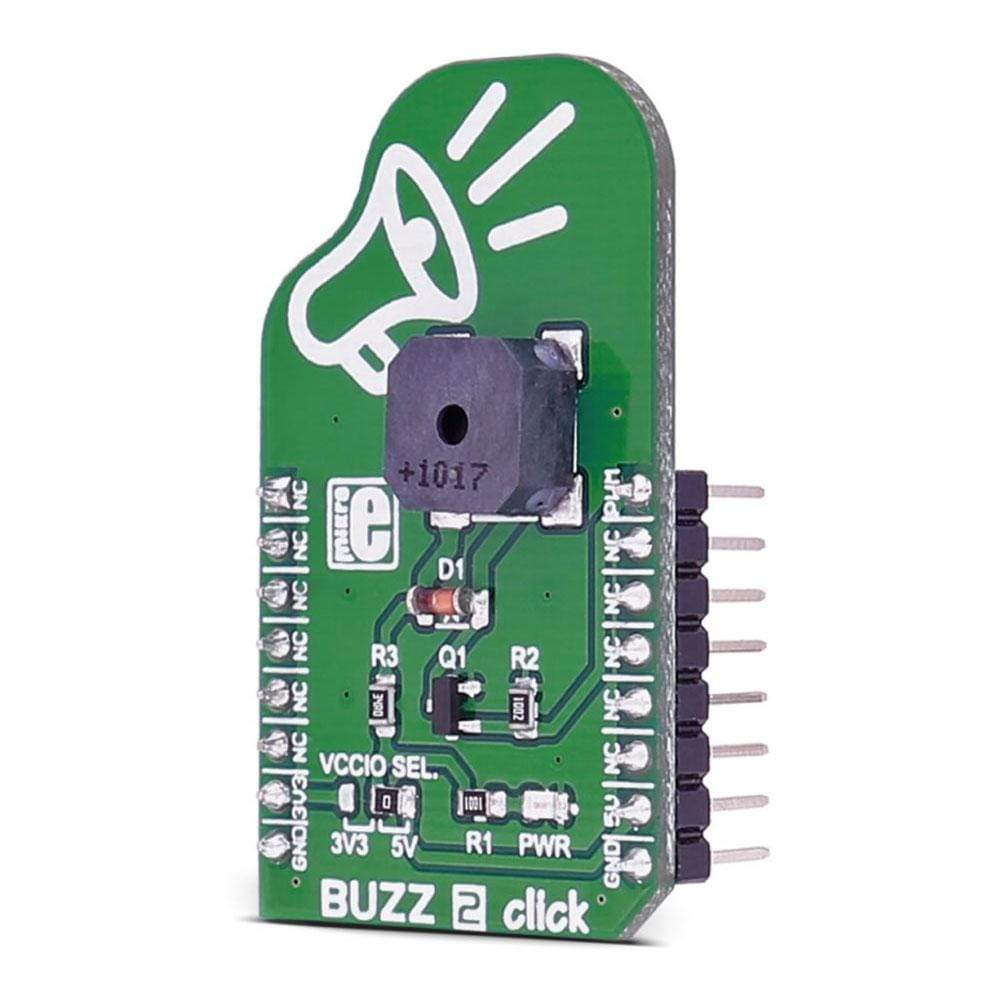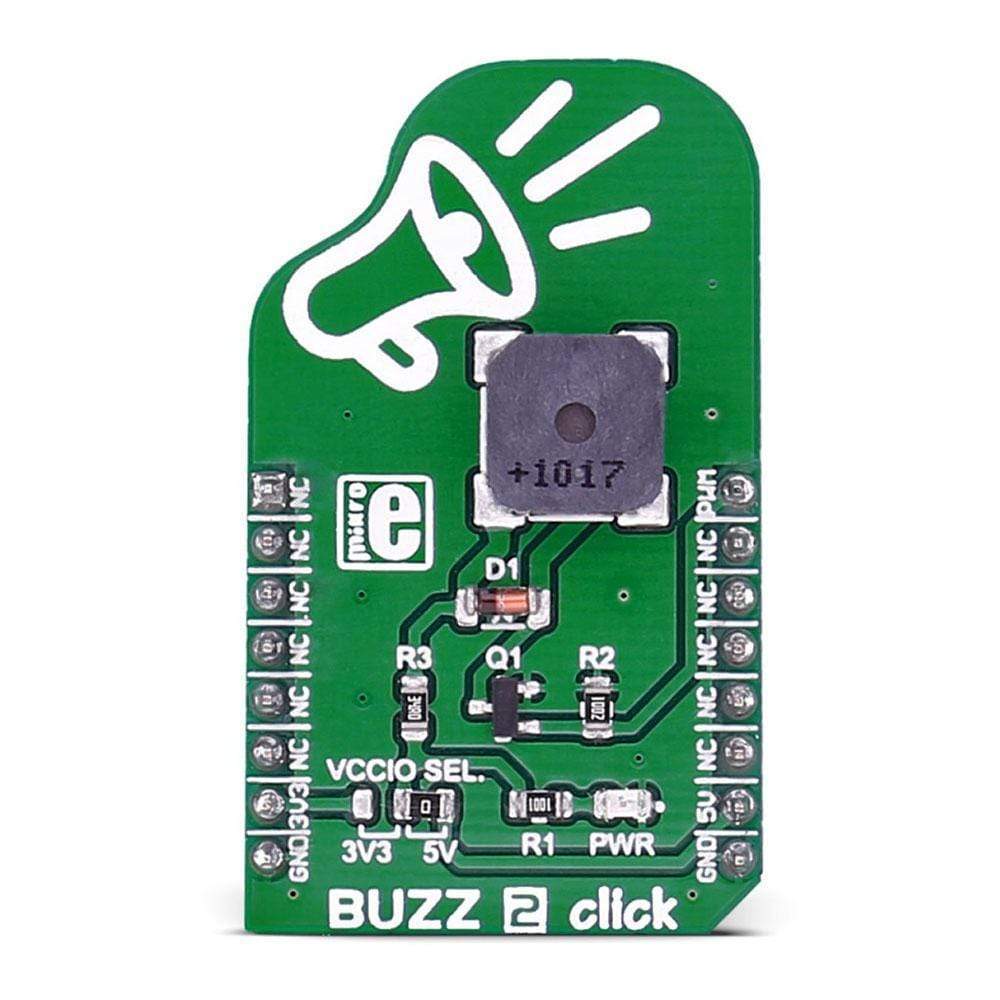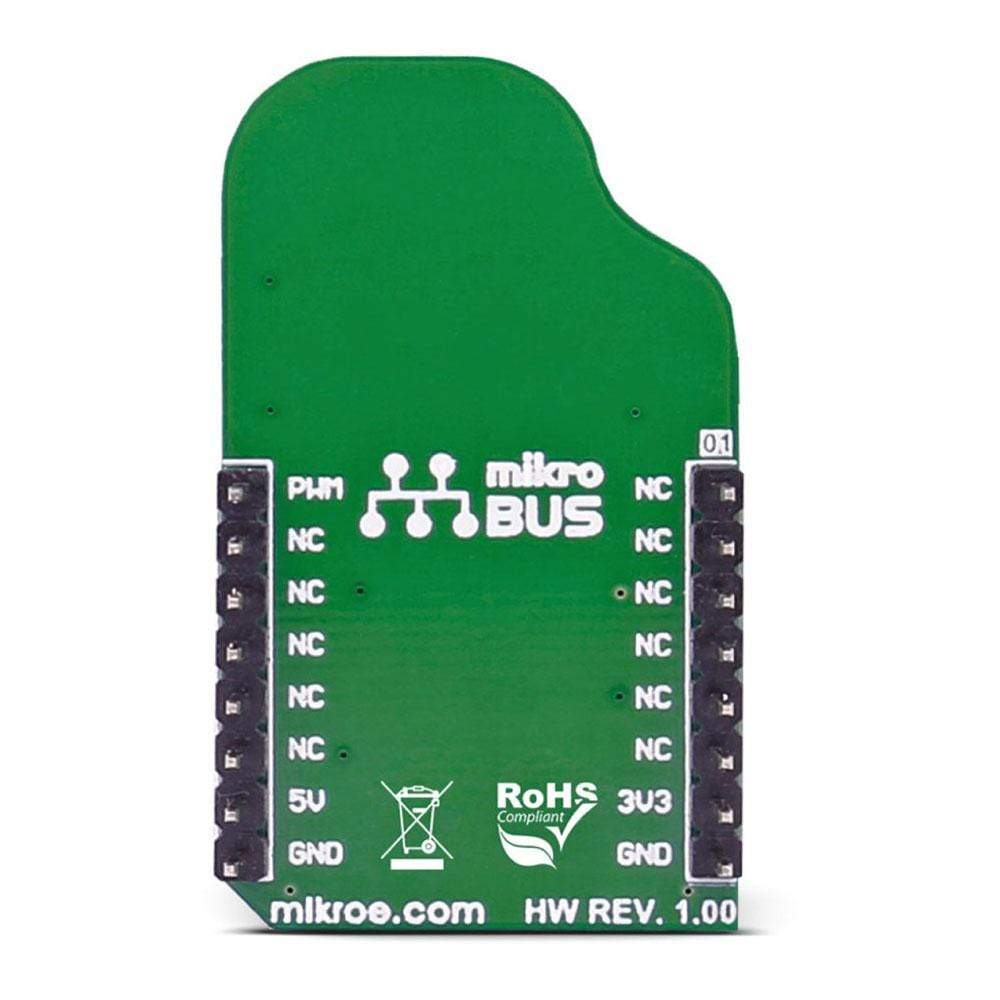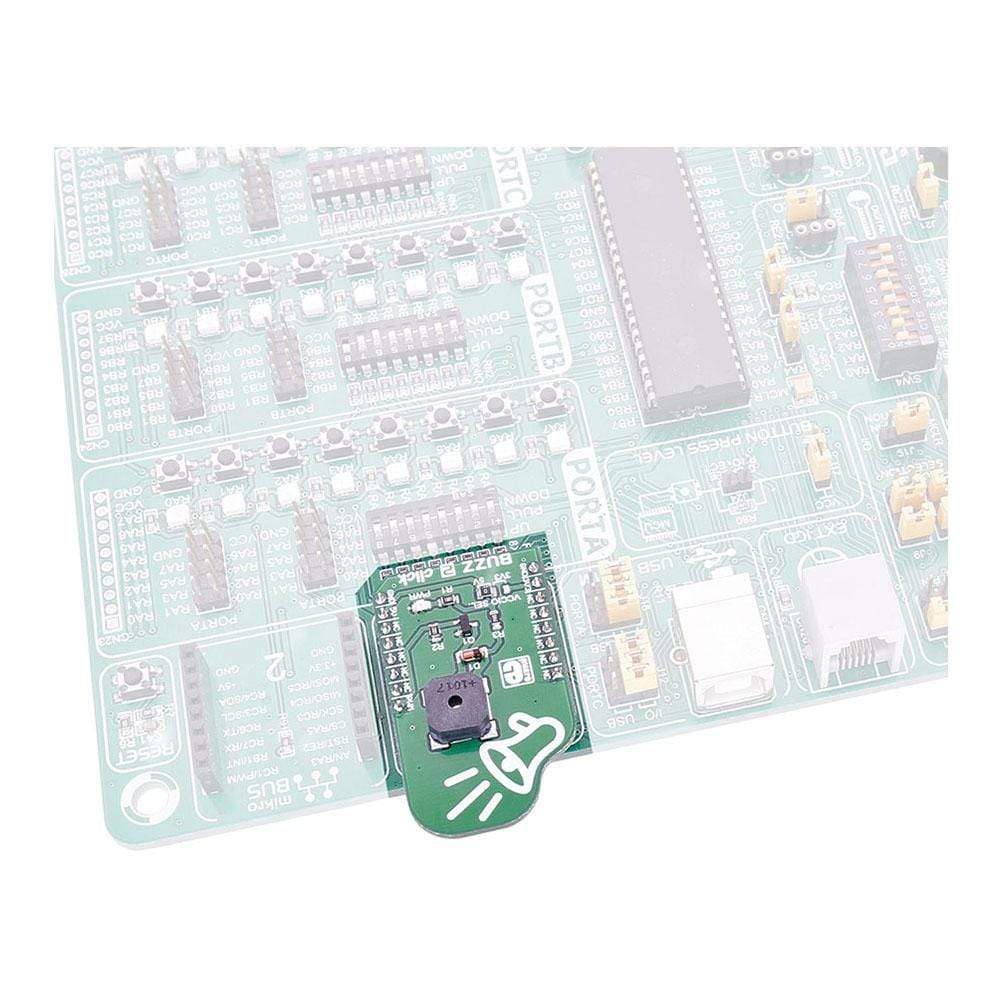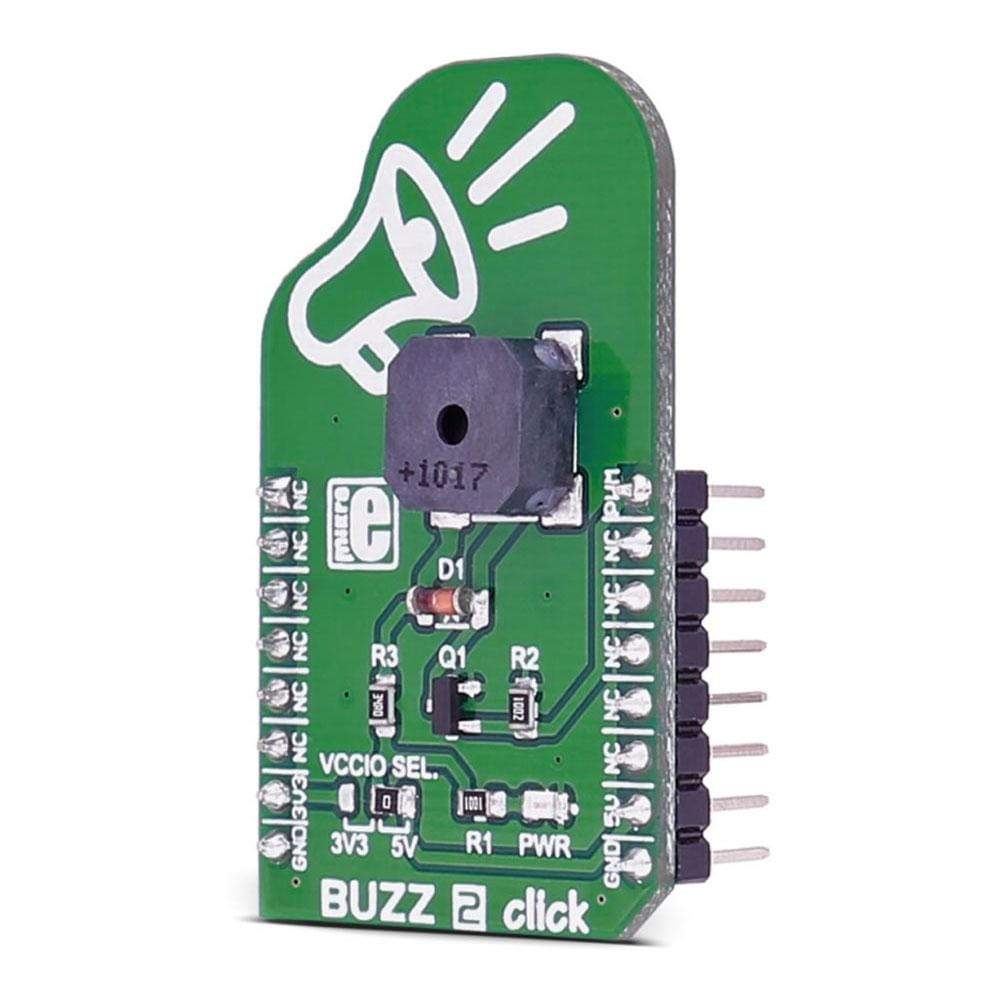
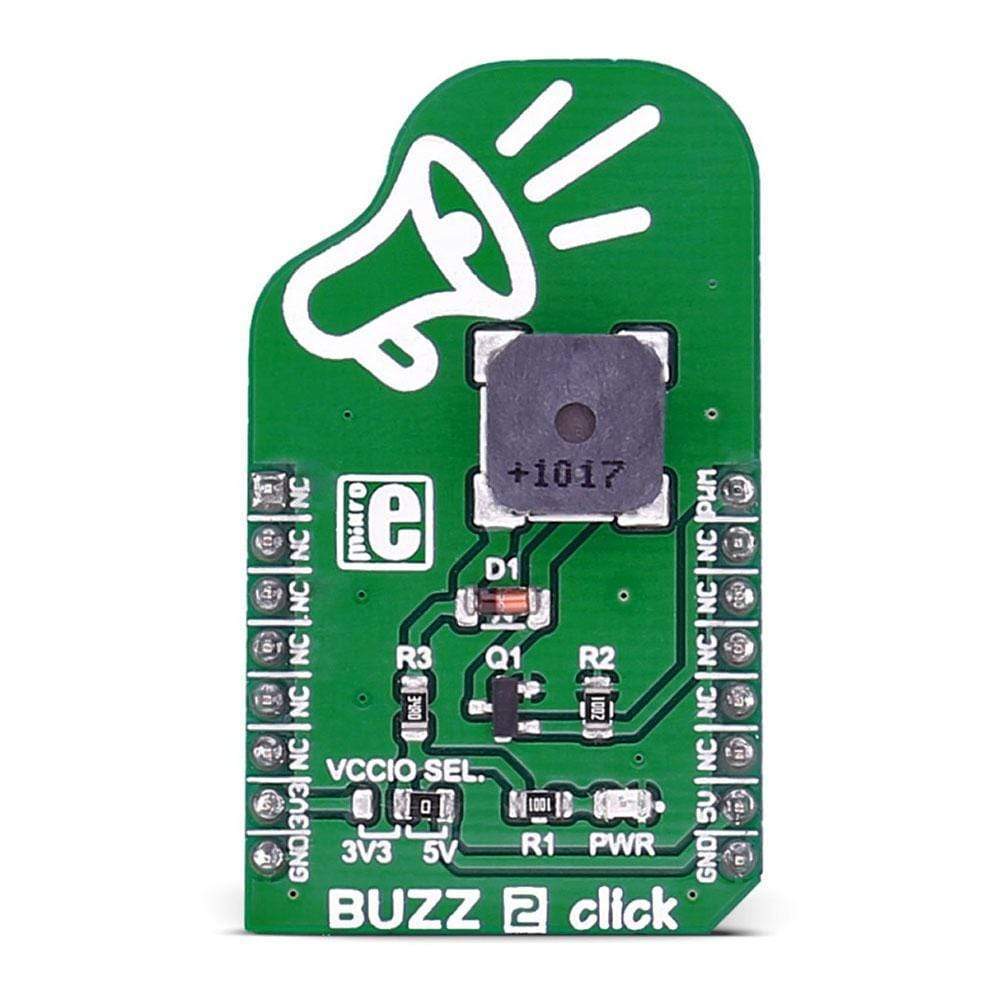
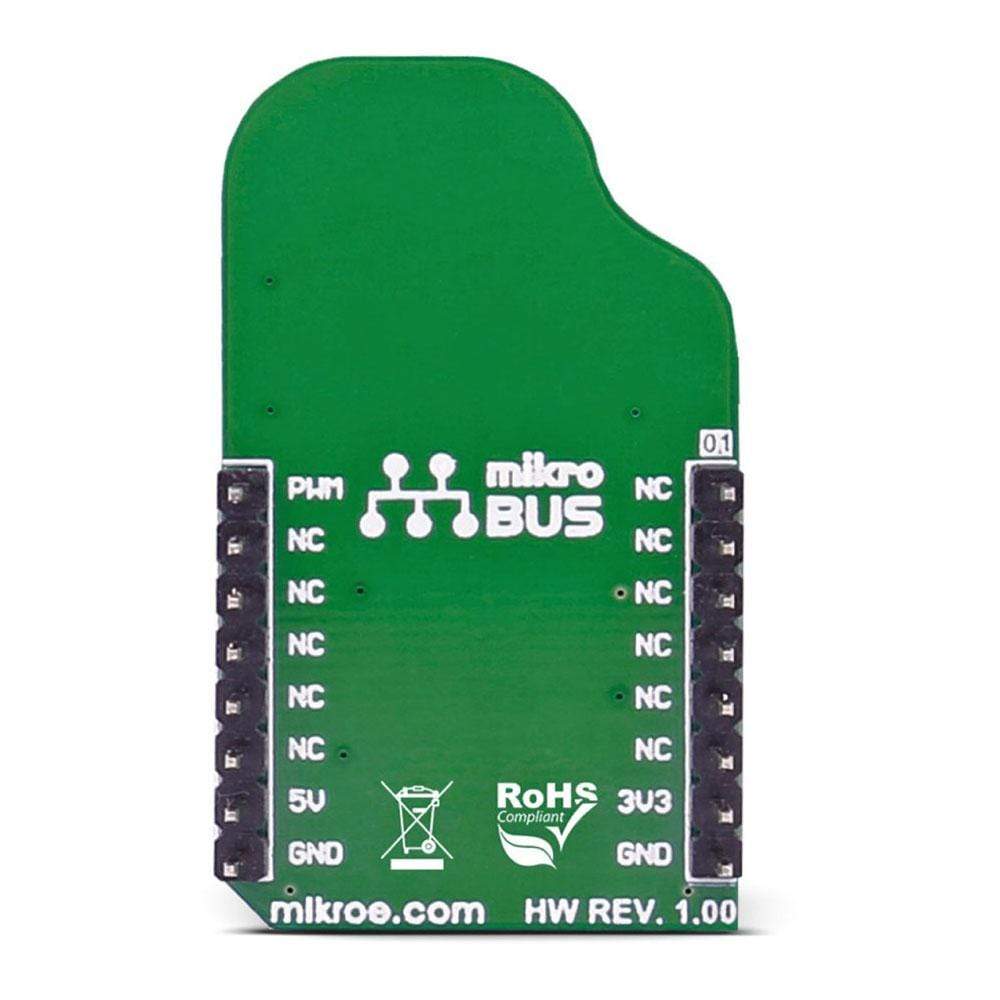

Overview
The Buzz 2 Click Board™ carries the CMT-8540S-SMT magnetic buzzer transducer.
The buzzer's resonant frequency is 4kHz. The Click Board™ is designed to run on either 3.3V or 5V power supply.
Downloads
Das Buzz 2 Click Board™ enthält den magnetischen Summerwandler CMT-8540S-SMT.
Die Resonanzfrequenz des Summers beträgt 4 kHz. Das Click Board™ ist für den Betrieb mit einer Stromversorgung von 3,3 V oder 5 V ausgelegt.
| General Information | |
|---|---|
Part Number (SKU) |
MIKROE-2720
|
Manufacturer |
|
| Physical and Mechanical | |
Weight |
0.019 kg
|
| Other | |
Country of Origin |
|
HS Code Customs Tariff code
|
|
EAN |
8606018711246
|
Warranty |
|
Frequently Asked Questions
Have a Question?
Be the first to ask a question about this.

